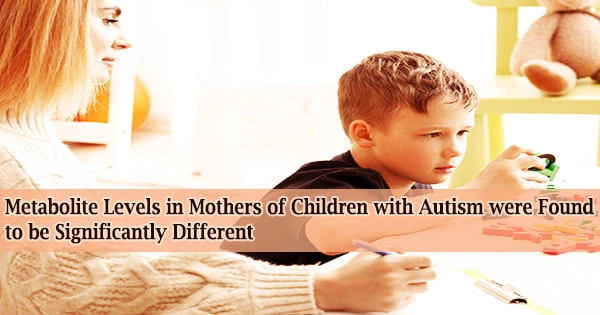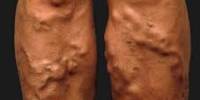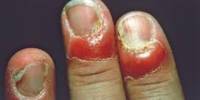Mothers with children with autism spectrum disorder (ASD) had many significantly different metabolite levels two to five years after giving birth compared to mothers of generally functioning children, according to blood sample analyses.
A interdisciplinary team from Rensselaer Polytechnic Institute, Arizona State University, and the Mayo Clinic recently published new findings in BMC Pediatrics.
Blood samples were taken from 30 moms whose young children had been diagnosed with ASD and 29 mothers whose children were developing normally. The women’s children were between the ages of 2 and 5 when the samples were obtained.
The researchers discovered changes in the levels of many metabolites in the two groups of moms. Researchers were able to categorize those changes into five groupings of associated metabolites after further investigation.
While the samples studied were taken several years after pregnancy, the findings raise the possibility that the changes in metabolites existed during pregnancy as well, implying that more research is needed in this area.
Low levels of folate, vitamin B12, and carnitine-conjugated compounds were associated to several of the differences, according to the study. Carnitine can be created by the body or obtained from meat sources such as pig or beef, but there was no link found between moms who ate more meat and their carnitine levels.
We had multiple metabolites that were associated with the carnitine metabolism. This suggests that carnitine and mothers is something that should be looked at.
Hahn
This discovery shows that the discrepancies may be related to how carnitine is metabolized in some mothers’ bodies, according to Juergen Hahn, the dean of Rensselaer’s Department of Biomedical Engineering and a co-author on the paper.
“We had multiple metabolites that were associated with the carnitine metabolism,” said Hahn, who is also a member of the Center for Biotechnology and Interdisciplinary Studies at Rensselaer. “This suggests that carnitine and mothers is something that should be looked at.”
The team’s big data technique was highly accurate in predicting which group a mother belonged to using a blood sample analysis, suggesting that a blood test to screen for moms who are at a higher risk of having a kid with ASD may be developed.
“A blood test would not be able to tell if your child has autism or not, but it could tell if you’re at a higher risk,” Hahn said. “And the classification of higher risk, in this case, can actually be significant.”
“Based on these results, we are now conducting a new study of stored blood samples collected during pregnancy, to determine if those metabolites are also different during pregnancy,” said James Adams, a President’s Professor in the School of Engineering of Matter, Transport and Energy, and director of the Autism/Asperger’s Research Program, both at Arizona State University. Adams co-authored this paper with Hahn.
This study expands on Hahn’s previous work. He previously uncovered patterns in the blood of autistic children’s metabolites that can be utilized to accurately predict diagnosis.
He’s used the same method to look at a mother’s chances of having an ASD child. Similar research has been done by him and Adams on children with autism who have chronic gastrointestinal difficulties.
















